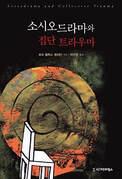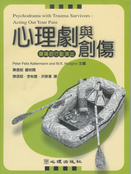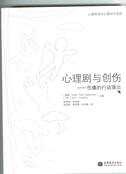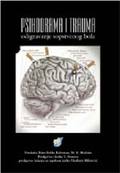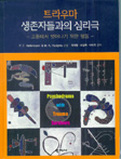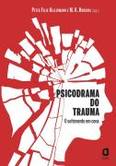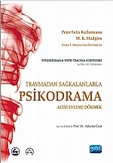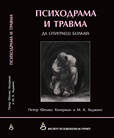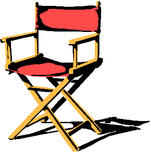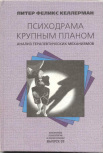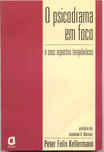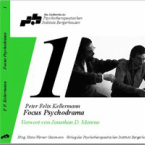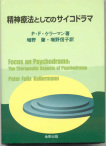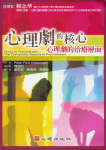Books |
|
Who Do You Think You Are? COVID-19 in Psychotherapy |
|
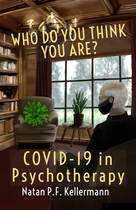
2020. Amazon.
In this book, the corona-virus becomes a client seeking psychotherapy. The virus appears to deal with his main presenting problem, which is that he has an irresistible urge to replicate and infect everyone. As a result, people keep a distance from him. “Everyone relates to me as if I were some kind of pest!” The therapist struggles to understand what’s going on within the mind of this small chemical structure. Does he have a conscious or an unconscious agenda? Who does he think he is? Faced with an impossible task, the therapist is torn between trying to cure the coronavirus while aiming to stop the pandemic. As the therapeutic process unfolds, both learn that they have a lot in common. More information can be found here.
Reviews:
A provocative book, a page turner and a brilliant concept. Bravo! It looks like Covid fell on fertile ground and conjured up a host of contemplations, thoughts and ideas. About time! A tour de force (an impressive achievement accomplished with great skill), and a crie de coer (a passionate appeal) provoked by the pandemic and written with an abundance of imagination. Sigmund would have been impressed! -UD
This novella is most creatively conceived and written engagingly with a unique vision and voice embodied by Covid. The format and trajectory, set against the psychotherapy framework of clinical practice will surely appeal to many readers. I was intrigued as the relationship was unfolding. Trauma and dissociation became an explicit feature. -GH
The finest explanation of Covid-19. This novella is the clearest, most user-friendly explanation of Covid-19 I have experienced to date of many dozens of explanations in every imaginable format. It is scientifically precise as it deals with causes and processes at the cellular level as well as the psychological and sociological one. -JH
This is a super achievement - timely - informative - a GREAT education in coronavirus AND psychotherapy basics. This story would make an intensely popular illustrated children's book. As it stands, the book raises fundamental questions of being/existence in such an accessible manner, i.e. most of Western Philosophy in a nutshell. "Who Do You Think You Are?" will be a big hit with philosophy professors and their students, biologists as well - especially those teaching genetics and evolution studies. -BB
I enjoyed very much this book. It reads like a thriller. -GA
A brilliant piece of writing on a timely topic. -DC
This book is a mixture of fact and fiction. The actual events of the present coronavirus pandemic are presented through the lens of a psychologist who tries to cure the virus itself from his mental problems. During the sessions he tries to make sense of what’s happening in the world. The question ‘Who do you think you are?’ refers both to the coronavirus and to us all. The text is written in an amusing way about a serious subject. I couldn’t put it down after the first chapter. Kept guessing how it would end, but the finale still surprised me. -EM
I fell for this book within the first chapter! I read it in a few sittings. Highly recommended. -SH
A timely book. -YW
Excellent! Very witty and full of rich insights. -NG
Creative, humorous, and enjoyable. Brilliant piece of writing. I read it with much excitement! -AB
I enjoyed the anthropomorphic nature of the piece - it felt like there were layers in the story between the psychotherapist and corona engaging in an individual relationship and society and coronavirus engaged in a more collective relationship. -SG
This is a brilliant, informative, thought-provoking, and enjoyable book. -DS
Very entertaining. -DK
I loooove it! Just great! It tells the story as we know it. -JC
It's very clever! I enjoyed this book. -DW
This virus story is wonderful! -MZ
The author has understood the biological part very well. He has an ecological-holistic point of view. -SR
This is an intriguing case presentation, with sense of humor and great insights! -DW
The decursis about C is very special. … And amusing. -JB
I used to be a virologist and was amazed by the vast knowledge the author shows not only in the biology of the virus but also on its psychology: until now an unchartered territory. It’s a great show of fine sense of humor and above all a humanistic approach at psychoanalytic labors. I enjoyed it deeply and shared it what colleges. -GP
Very well written book by a terrific author. -KF
A creative and beautifully crafted piece. –SO
Very very clever and also frighteningly enjoyable. -LR
In this book, the corona-virus becomes a client seeking psychotherapy. The virus appears to deal with his main presenting problem, which is that he has an irresistible urge to replicate and infect everyone. As a result, people keep a distance from him. “Everyone relates to me as if I were some kind of pest!” The therapist struggles to understand what’s going on within the mind of this small chemical structure. Does he have a conscious or an unconscious agenda? Who does he think he is? Faced with an impossible task, the therapist is torn between trying to cure the coronavirus while aiming to stop the pandemic. As the therapeutic process unfolds, both learn that they have a lot in common. More information can be found here.
Reviews:
A provocative book, a page turner and a brilliant concept. Bravo! It looks like Covid fell on fertile ground and conjured up a host of contemplations, thoughts and ideas. About time! A tour de force (an impressive achievement accomplished with great skill), and a crie de coer (a passionate appeal) provoked by the pandemic and written with an abundance of imagination. Sigmund would have been impressed! -UD
This novella is most creatively conceived and written engagingly with a unique vision and voice embodied by Covid. The format and trajectory, set against the psychotherapy framework of clinical practice will surely appeal to many readers. I was intrigued as the relationship was unfolding. Trauma and dissociation became an explicit feature. -GH
The finest explanation of Covid-19. This novella is the clearest, most user-friendly explanation of Covid-19 I have experienced to date of many dozens of explanations in every imaginable format. It is scientifically precise as it deals with causes and processes at the cellular level as well as the psychological and sociological one. -JH
This is a super achievement - timely - informative - a GREAT education in coronavirus AND psychotherapy basics. This story would make an intensely popular illustrated children's book. As it stands, the book raises fundamental questions of being/existence in such an accessible manner, i.e. most of Western Philosophy in a nutshell. "Who Do You Think You Are?" will be a big hit with philosophy professors and their students, biologists as well - especially those teaching genetics and evolution studies. -BB
I enjoyed very much this book. It reads like a thriller. -GA
A brilliant piece of writing on a timely topic. -DC
This book is a mixture of fact and fiction. The actual events of the present coronavirus pandemic are presented through the lens of a psychologist who tries to cure the virus itself from his mental problems. During the sessions he tries to make sense of what’s happening in the world. The question ‘Who do you think you are?’ refers both to the coronavirus and to us all. The text is written in an amusing way about a serious subject. I couldn’t put it down after the first chapter. Kept guessing how it would end, but the finale still surprised me. -EM
I fell for this book within the first chapter! I read it in a few sittings. Highly recommended. -SH
A timely book. -YW
Excellent! Very witty and full of rich insights. -NG
Creative, humorous, and enjoyable. Brilliant piece of writing. I read it with much excitement! -AB
I enjoyed the anthropomorphic nature of the piece - it felt like there were layers in the story between the psychotherapist and corona engaging in an individual relationship and society and coronavirus engaged in a more collective relationship. -SG
This is a brilliant, informative, thought-provoking, and enjoyable book. -DS
Very entertaining. -DK
I loooove it! Just great! It tells the story as we know it. -JC
It's very clever! I enjoyed this book. -DW
This virus story is wonderful! -MZ
The author has understood the biological part very well. He has an ecological-holistic point of view. -SR
This is an intriguing case presentation, with sense of humor and great insights! -DW
The decursis about C is very special. … And amusing. -JB
I used to be a virologist and was amazed by the vast knowledge the author shows not only in the biology of the virus but also on its psychology: until now an unchartered territory. It’s a great show of fine sense of humor and above all a humanistic approach at psychoanalytic labors. I enjoyed it deeply and shared it what colleges. -GP
Very well written book by a terrific author. -KF
A creative and beautifully crafted piece. –SO
Very very clever and also frighteningly enjoyable. -LR
Holocaust Trauma: Psychological Effects and Treatment
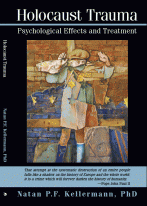
2009. iUniverse. New York & Bloomington.
Holocaust Trauma offers a comprehensive overview of the long-term psychological effects of Holocaust trauma. It covers not only the direct effects on the actual survivors and the transmission effects upon the offspring, but also the collective effects upon other affected populations, including the Israeli Jewish and the societies in Germany and Austria. It also suggests various possible intervention approaches to deal with such long-term effects of major trauma upon individuals, groups and societies that can be generalized to other similar traumatic events. The material presented is based on the clinical experience gathered from hundreds of clients of the National Israeli Center for Psychosocial Support of Holocaust Survivors and the Second Generation (AMCHA), an Israeli treatment center for this population, and from facilitating groups of Austrian/German participants in Yad Vashem and Europe; as well as upon an extensive review of the vast literature in the field.
More information can be found here.
Reviews in History News Network, Jerusalem Post, Deutsches Ärzteblatt, Journal of the American Medical Association, Amazon.
Michael Grodin calls new Holocaust book 'monumental' in JAMA review: "...the most important book published on this topic in a decade."
Christian Pross: "Das Buch baut eine Brücke zwischen vergangenem, vergessenem und neuem Wissen. Deshalb sollte es unbedingt auch in deutscher Sprache erscheinen."
Judy Siegel-Itzkovich: "A new book examines how Holocaust trauma can haunt even the grandchildren of survivors."
Mark Le Schack: "This is first rate research. ...easily readable by non psychologists."
Holocaust Trauma offers a comprehensive overview of the long-term psychological effects of Holocaust trauma. It covers not only the direct effects on the actual survivors and the transmission effects upon the offspring, but also the collective effects upon other affected populations, including the Israeli Jewish and the societies in Germany and Austria. It also suggests various possible intervention approaches to deal with such long-term effects of major trauma upon individuals, groups and societies that can be generalized to other similar traumatic events. The material presented is based on the clinical experience gathered from hundreds of clients of the National Israeli Center for Psychosocial Support of Holocaust Survivors and the Second Generation (AMCHA), an Israeli treatment center for this population, and from facilitating groups of Austrian/German participants in Yad Vashem and Europe; as well as upon an extensive review of the vast literature in the field.
More information can be found here.
Reviews in History News Network, Jerusalem Post, Deutsches Ärzteblatt, Journal of the American Medical Association, Amazon.
Michael Grodin calls new Holocaust book 'monumental' in JAMA review: "...the most important book published on this topic in a decade."
Christian Pross: "Das Buch baut eine Brücke zwischen vergangenem, vergessenem und neuem Wissen. Deshalb sollte es unbedingt auch in deutscher Sprache erscheinen."
Judy Siegel-Itzkovich: "A new book examines how Holocaust trauma can haunt even the grandchildren of survivors."
Mark Le Schack: "This is first rate research. ...easily readable by non psychologists."
Sociodrama and Collective Trauma
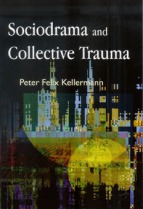
2007. Jessica Kingsley Publishers. London.
Time does not heal all wounds: decades after a disaster, entire communities may still experience the long-term effects of trauma.
Sociodrama and Collective Trauma examines the psychological and social damage of trauma to society as a whole. Kellermann argues that collective trauma has been insufficiently considered; his timely book suggests practical ways of facilitating the rehabilitation of survivors of collective trauma through, for example, sociodrama and related group work. The author develops methods for understanding the past and preparing for the future and provides a wealth of case studies based on 30 years' experience of treating survivors of war trauma and other forms of disaster. Combining a systematic theoretical approach with a practical methodology, this insightful book is invaluable for drama therapists, group therapists, mental health professionals and counsellors.
Reviews
"Passionate but Measured." Jenny Hutt, Australian and New Zealand Psychodrama Association Journal, Vol. 18, 2009: 98-100.
"It is a rich and committed book, conveying the deeply felt responsibility of the author to confront prejudices, inhumanity and ideologies promoting violations of human rights and human dignity." Peter Berliner, Counselling and Psychotherapy Research, University of Copenhagen.
"The style is engaging and likely to encourage the reader to want to know more..." Ruth Barnett, Therapy Today.
"A fascinating and inspiring book, motivated by a powerful vision of sociodrama..." David Manier, PsycCritiques.
"A very compassionate text about human suffering." Groupwork, 2007. 17(3), 81-84
"I recommend this book to all those who want to make a difference in how our communities function." Carl Dutton, The British Journal of Psychodrama and Sociodrama. Winter/Spring, 2008.
"This challenging and instructive book grapples with huge issues and covers a wide territory." Kirstin Hubert, Group Analysis, 2008
Time does not heal all wounds: decades after a disaster, entire communities may still experience the long-term effects of trauma.
Sociodrama and Collective Trauma examines the psychological and social damage of trauma to society as a whole. Kellermann argues that collective trauma has been insufficiently considered; his timely book suggests practical ways of facilitating the rehabilitation of survivors of collective trauma through, for example, sociodrama and related group work. The author develops methods for understanding the past and preparing for the future and provides a wealth of case studies based on 30 years' experience of treating survivors of war trauma and other forms of disaster. Combining a systematic theoretical approach with a practical methodology, this insightful book is invaluable for drama therapists, group therapists, mental health professionals and counsellors.
Reviews
"Passionate but Measured." Jenny Hutt, Australian and New Zealand Psychodrama Association Journal, Vol. 18, 2009: 98-100.
"It is a rich and committed book, conveying the deeply felt responsibility of the author to confront prejudices, inhumanity and ideologies promoting violations of human rights and human dignity." Peter Berliner, Counselling and Psychotherapy Research, University of Copenhagen.
"The style is engaging and likely to encourage the reader to want to know more..." Ruth Barnett, Therapy Today.
"A fascinating and inspiring book, motivated by a powerful vision of sociodrama..." David Manier, PsycCritiques.
"A very compassionate text about human suffering." Groupwork, 2007. 17(3), 81-84
"I recommend this book to all those who want to make a difference in how our communities function." Carl Dutton, The British Journal of Psychodrama and Sociodrama. Winter/Spring, 2008.
"This challenging and instructive book grapples with huge issues and covers a wide territory." Kirstin Hubert, Group Analysis, 2008
Translations
Psychodrama with Trauma Survivors: Acting Out Your Pain.
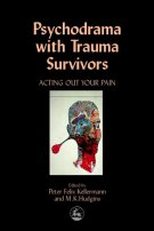
2000. Jessica Kingsley Publishers. London. Edited together with M.K. Hudgins.
In a world where natural, social and political disasters are a daily reality, the therapist is increasingly called upon to find rapid and effective methods of treating the survivors of trauma, including sexual abuse, torture, war-related trauma, addiction, depression and bereavement. The contributors to this book provide persuasive evidence of how psychodrama can safely be used to create paths of change for even the most severe traumatization and they also discuss the possible transmission of trauma patterns across generations. Research following World War II, neurobiological studies and other recent research into PTSD has shown that many trauma symptoms are unconscious, non-verbal, right-brained experiences which cannot be accessed through talk therapy. Psychodrama creates a place to act out unprocessed trauma within the containment of therapy, in order to stop the obsessive repetition of the past. Psychodrama with Trauma Survivors documents the impact of trauma and explores the development of treatment, providing integrated models of experiential treatment for clinicians to use. It is an invaluable resource for those interested in psychodrama and those working with trauma survivors.
In a world where natural, social and political disasters are a daily reality, the therapist is increasingly called upon to find rapid and effective methods of treating the survivors of trauma, including sexual abuse, torture, war-related trauma, addiction, depression and bereavement. The contributors to this book provide persuasive evidence of how psychodrama can safely be used to create paths of change for even the most severe traumatization and they also discuss the possible transmission of trauma patterns across generations. Research following World War II, neurobiological studies and other recent research into PTSD has shown that many trauma symptoms are unconscious, non-verbal, right-brained experiences which cannot be accessed through talk therapy. Psychodrama creates a place to act out unprocessed trauma within the containment of therapy, in order to stop the obsessive repetition of the past. Psychodrama with Trauma Survivors documents the impact of trauma and explores the development of treatment, providing integrated models of experiential treatment for clinicians to use. It is an invaluable resource for those interested in psychodrama and those working with trauma survivors.
Reviews
"This collaboration details the work of international experts who practise psychodrama in many different countries." Zerka T. Moreno, 2000.
"This well-written book deals sensitively and wisely with much of the depth and breadth of human trauma." Psychotherapy in Australia.
"I was very impressed with this book." Diane J. Adderley, Drama Therapy, Autumn, 2001.
"...a great window of possibilities for clinicians seeking new options for treatment." Karen Carnabucci.
"This well-written book deals sensitively and wisely with much of the depth and breadth of human trauma." Psychotherapy in Australia.
"I was very impressed with this book." Diane J. Adderley, Drama Therapy, Autumn, 2001.
"...a great window of possibilities for clinicians seeking new options for treatment." Karen Carnabucci.
Translations:
Focus on Psychodrama: The Therapeutic Aspects of Psychodrama.
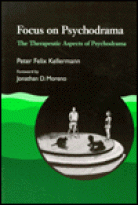
1992. Jessica Kingsley Publishers. London.
This book provides a comprehensive overview of the theory and practice of psychodrama, presenting a systematic analysis of its essential ingredients. The core issues involved are specified and the interpersonal, emotional, imaginary, behavioural and cognitive elements are discussed. By proposing more uniform definitions for these central psychodramatic concepts, some of the confusion which surrounds the theory of psychodramatic technique is reduced. The professional roles assumed by psychodramatists are examined and the skills required in each role are established. In addition, the therapeutic value of catharsis and emotional abreaction is discussed. Also explored is the use of the concept of acting out, both in psychdrama and psychoanalysis, and how the use of action-insight methods can provoke profound learning experiences. The book concludes with discussions of the problem of resistance, and the importance of the concept and technique of closure in each psychodrama. A processing checklist is added at the end of the book as a systematic aid in evaluating the professional skills of the psychodramatist. The chapters are both pragmatic and solidly grounded in theory, thereby providing students with an effective, in-depth alternative to the traditional verbal therapies. The book is intended for students and practitioners of psychodrama, and professionals seeking to extend their knowledge of creative arts therapies.
This book provides a comprehensive overview of the theory and practice of psychodrama, presenting a systematic analysis of its essential ingredients. The core issues involved are specified and the interpersonal, emotional, imaginary, behavioural and cognitive elements are discussed. By proposing more uniform definitions for these central psychodramatic concepts, some of the confusion which surrounds the theory of psychodramatic technique is reduced. The professional roles assumed by psychodramatists are examined and the skills required in each role are established. In addition, the therapeutic value of catharsis and emotional abreaction is discussed. Also explored is the use of the concept of acting out, both in psychdrama and psychoanalysis, and how the use of action-insight methods can provoke profound learning experiences. The book concludes with discussions of the problem of resistance, and the importance of the concept and technique of closure in each psychodrama. A processing checklist is added at the end of the book as a systematic aid in evaluating the professional skills of the psychodramatist. The chapters are both pragmatic and solidly grounded in theory, thereby providing students with an effective, in-depth alternative to the traditional verbal therapies. The book is intended for students and practitioners of psychodrama, and professionals seeking to extend their knowledge of creative arts therapies.
"Buy it! This is an excellent book on psychodrama written by one of the few true scholars in our field." Marcia Karp, BPA Journal 7(2).
"This work shows evidence of a good deal of effort and raises some very interesting points. ... Using role playing as a generic backdrop and generally drawing on auxiliaries in a group setting, psycho-dramatists' use of such techniques as soliloquiy, double, mirroring, role-reversal, maximizing, and concretizing can promote rapid change, even in certain clients who may have remained unresponsive and resistant to other approaches." Arnold A. Lazarus, Contemporary Psychology, 1993, 38(8). "This is a good, basic book on psychodrama which guides the reader through the history, context, principles and practice of psychodrama. ... What I like about this book is that Kellermann is prepared to look at the critiques of psychodrama and suggest real strategies for tightening practice." Sue Jennings, Groupwork, 6(1). "This is an extremely wide-ranging and perceptive study which provides a detailed overview of the theories supporting the therapeutic claims made for psychodrama." Tony Goode, Journal of National Drama, 2(3), 1994. "...this book is an excellent piece of scholarship and a worthy addition to the psychodrama literature." Alton Barbour, JGPPS, Winter 1996. |
Translations
|

